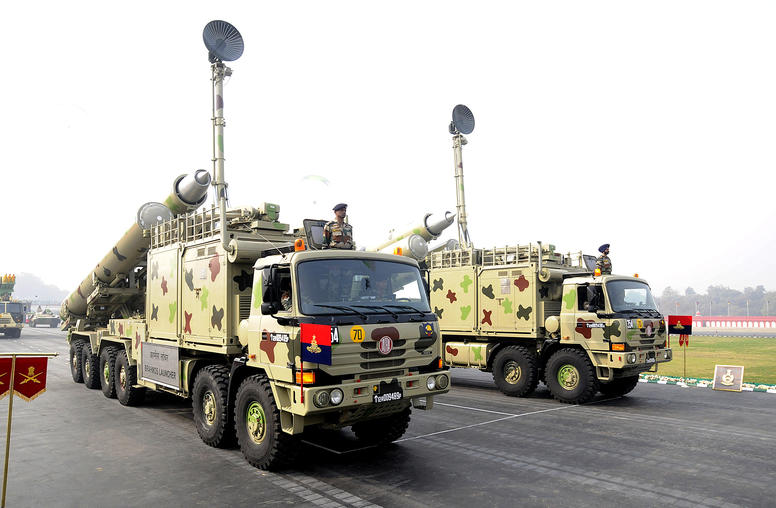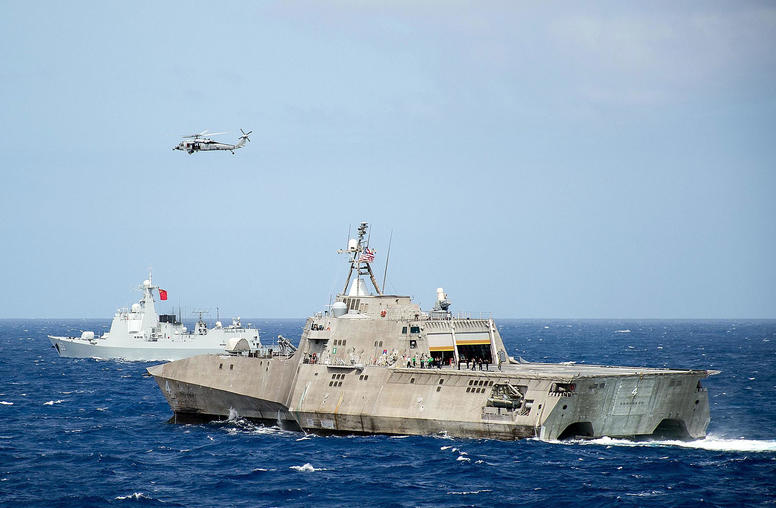 India
India
As the world’s largest democracy and the dominant regional power in South Asia, India has become a cornerstone for U.S. strategy in the Indo-Pacific. USIP works to inform policymakers and practitioners through research, analysis and convening on India’s growing strategic partnership with the United States, in addition to the regional conflict dynamics. Priority themes of focus for the USIP India program include the bilateral tensions between India and China; the emerging strategic balance between India and its nuclear-armed neighbors; and regional conflict drivers — including complex post-colonial disputes, fragile democratic institutions, climate and resource pressures, and competition among a growing, heterogeneous population.
Featured Research & Analysis

What Are the Limits of U.S.-India Security Burden-Sharing in the Indian Ocean?
By: Nilanthi Samaranayake, Adjunct Fellow, East-West Center
When viewing U.S. partnerships in the maritime domain, relations with India, in particular, have thrived — especially over the past decade. Moreover, the partnership enjoys bipartisan support in the United States. Indications after Prime Minister Narendra Modi’s visit to the White House in February 2025 are that U.S.-India security relations will continue to be strong in the second Trump administration.

How Vulnerable Is India to Chinese Economic Coercion?
By: Sushant Singh
While India has taken a strong security stance against China, its economic posture has been cooperative. But India's reliance on Chinese imports may undermine its role as a counterbalance to China. The U.S. can help India serve as a counterweight to China by supporting Delhi’s de-risking efforts.

What Do Changes in China’s Nuclear Program Mean for India?
At the end of 2024, the annual U.S. Department of Defense report on military and security developments in China reinforced evolving assessments of China’s rapid nuclear expansion with an alarming projection: The U.S. expects China to have 1,000 nuclear warheads by 2030 despite having maintained a nuclear arsenal of approximately 300 warheads for decades.
Current Projects

Religious and Psychosocial Support for Displaced Trauma Survivors
Since spring 2021, USIP has been identifying best practices in psychosocial support to better facilitate collaboration and cooperation between religious actors and mental health professionals who provide services to conflict-affected communities, including trauma-affected displaced persons. This thematic area of work focused initially on Latin America as a pilot region and has since expanded to the Asia and European contexts — offering practical and evidence-based recommendations to relevant stakeholders.

Senior Study Group on Strategic Stability in Southern Asia
Beginning in June 2021, USIP convened a group of senior experts to assess concerns that recent geopolitical and technological trends increasingly threaten the tenuous stability of Southern Asia. Over seven virtual plenary sessions, the senior study group assessed the changing capabilities, doctrines, threat perceptions and crisis response behavior of the main regional nuclear actors. Their final report summarizes those findings, considers U.S. policy options and identifies priority recommendations for the resolution or mitigation of core disputes, the enhancement of regional strategic stability, and the management of potential future crises.

Crisis Communications with China in the Indo-Pacific
In today’s era of strategic competition between the United States and China, crises are more likely than ever in the Indo-Pacific region. Effective mechanisms are therefore needed to prevent such crises from escalating into armed conflict. To this end, USIP is examining crisis communication mechanisms and negotiations between China and its regional neighbors to identify common issues and themes across countries to provide lessons that can be learned and shared.